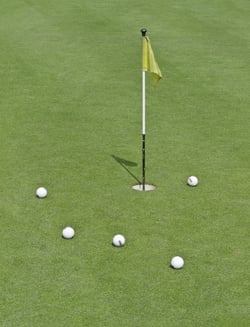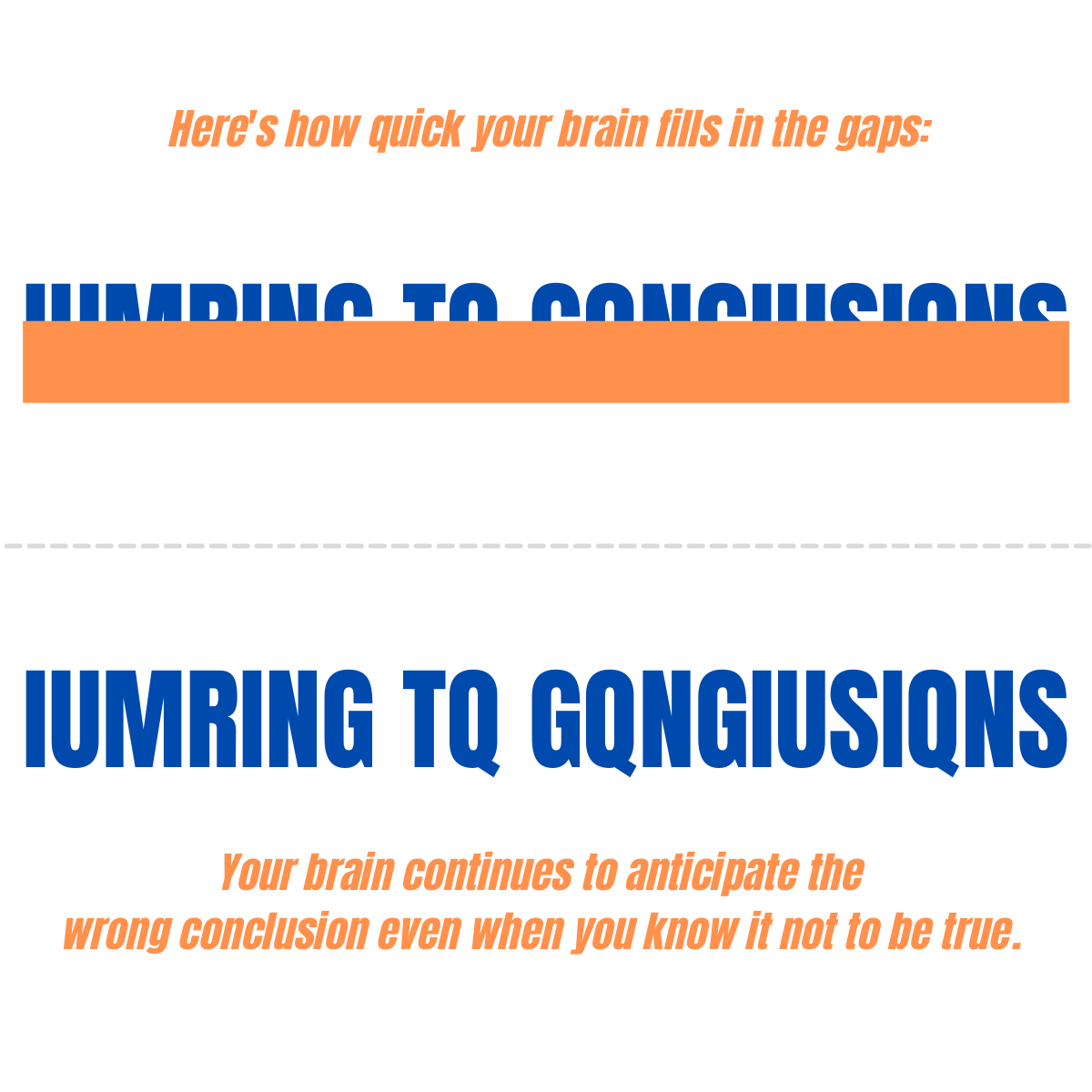The strongest part of my golf game has always been my short game. Depth perception is essential for determining the distance around the green. In early 2022, I discovered that my vision loss has affected my depth perception and, therefore, my short game.
I am truly grateful that I am able to be back swinging a golf club. Rather than be frustrated, I thought I would try some of my own advice that I generously have given out over the years on chipping. Later, I realized that I was using Deliberate Practice to relearn the basics of chipping.
I was practicing chipping in my backyard like I've done for years. I was struggling to land near the targets, and as I kept hitting balls, it wasn't getting better. Rather than be frustrated, I remembered my GOLF ADVICE: chipping is like tossing a ball and imagining the club is just an extension of your hand.
I put down my club and picked up a handful balls. I addressed the target like I would for any chip shot. Having just one ball in my dominant hand, I did the motion of a chip and tossed the ball towards the target. I repeated that routine over and over until I was hitting the targets. I then picked up my wedge and started practicing chipping again.
Wow, what a change in the outcomes! I went from hitting the target about 10% to hitting 70%. That's right, this engineer had graph paper and had created a run chart.
Brain research is clear: In order to develop new habits, you should practice new routines and experience a progressive sense of mastering them which helps generate and maintain enthusiasm. Then, following a set pattern with deliberate practice helps us rewire our brains with new neural circuits to acquire new skills and mindsets.
 Deliberate Practice is more than just practice. It is focused attention on a few incremental steps that one can master before moving on to the next incremental steps. This is how we learn new skills such as playing an instrument or a new sport. It is also how we improve performances so we can move ourselves or organizations from good to great.
Deliberate Practice is more than just practice. It is focused attention on a few incremental steps that one can master before moving on to the next incremental steps. This is how we learn new skills such as playing an instrument or a new sport. It is also how we improve performances so we can move ourselves or organizations from good to great.
This reminds me of the Starter Kata, which is a simple routine. The Improvement Kata combines a scientific working pattern (routine) with techniques of deliberate practice, to make scientific thinking a teachable skill anyone can learn. These foundational thinking habits are a basis for successfully pursuing seemingly unattainable goals in complex systems and it enables teams to make decisions and maneuver effectively.
For more information on using Kata for yourself and your company, check out http://DoYouKata.com or follow my pursuit of improving my golf game at http://StriveForeFive.com.





